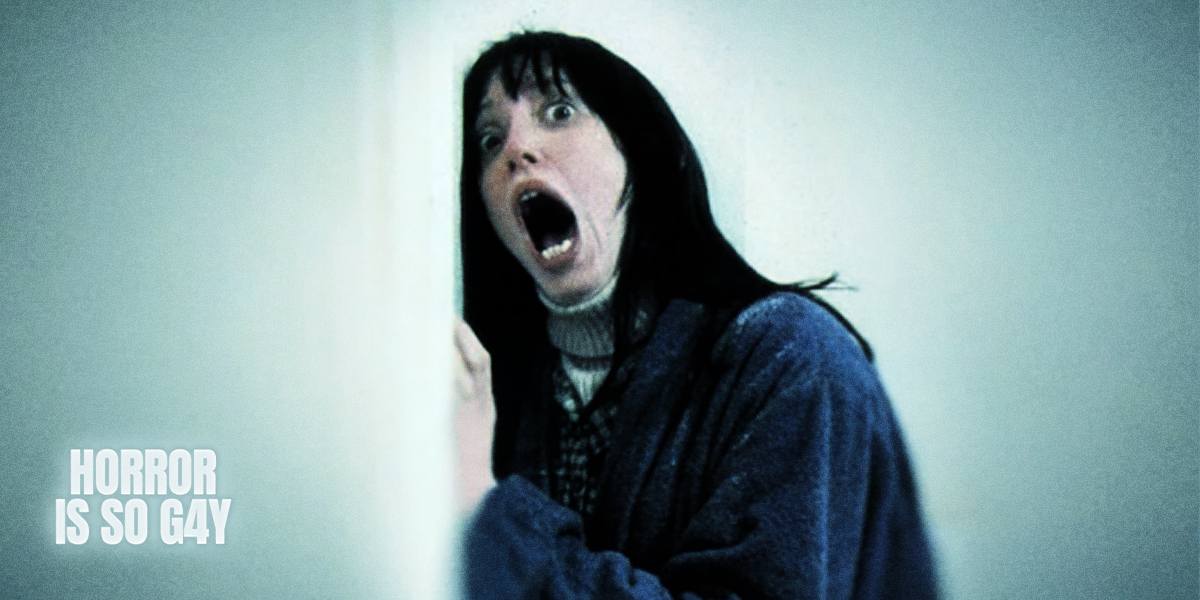Coen Brothers feature art by Autostraddle with a photo by Vera Anderson/WireImage via Getty Images.
From the lesbian who taught you about Martin Scorsese, I’m back to educate any queers in need on the cinema of the Coen Brothers.
Ethan Coen and Tricia Cooke’s Drive-Away Dolls hit theatres this weekend and it’s likely created new Coen fans in the queer community. While Ethan’s movies with his brother Joel have far fewer lesbians, they’re still really good! As I said in my review, Drive-Away Dolls feels like a true collaboration between Coen and Cooke. So if you loved that movie, there’s a good chance you’ll love at least half of his other work. (I think that’s how math works.)
My guess is you’ve seen — or, at least, heard of — the Coen Brothers’ most famous films: The Big Lebowski, Fargo, and the Best Picture-winning No Country for Old Men. But, as far as I’m concerned, those aren’t even their best films. So let me recommend some of their other work for you to check out!

Blood Simple (1984) and Raising Arizona (1987)

While their comedies are dark and their dramas are funny, from the beginning, much of the Coens’ work can be split into these two categories. Their first film, Blood Simple, is a neo-noir played straight — a well-crafted crime drama and their first of many collaborations with Frances McDormand. Their second film, Raising Arizona, is its tonal opposite, a goofy romantic caper about an ex-cop and ex-con who fall in love and then kidnap a rich child. If you’re looking for a film similar to Drive-Away Dolls, Raising Arizona is your best bet, but both of these films are perfect introductions to their oeuvre.
Barton Fink (1991)

If you’d rather dive right in, feel free to skip those introductions and go straight to their first masterpiece: the undefinable Barton Fink. Falling somewhere between noir and horror and dark, dark comedy, this film about a playwright who comes to Hollywood to write scripts, contains all the frustrations of artists adjusting to lives in the movie business. John Turturro is perfect as the writer and John Goodman is equally well-cast as his nightmare.
O Brother, Where Art Thou? (2000)

The first Coen Brothers movie I ever saw was their adaptation of The Odyssey set in 1937 Mississippi. It was also their first film with George Clooney, a movie star whose talents are often wasted when he works with anyone besides the Coens and Steven Soderbergh. He’s perfect here as an escaped convict chained to two other escaped convicts played by Tim Blake Nelson and old Coen favorite John Turturro. The music in the Coens’ film is always incredible — composer Carter Burwell scores all their films — but here it’s really special. After all, it did win the 2002 Grammy for Best Album of the Year, the last soundtrack to do so.
A Serious Man (2009)

If you’re Jewish, this is the film you must see. Not only does it begin with Jewish folklore and center around a Bar Mitzvah, but the entire film is layered with Jewish humor and a certain subset of Jewish culture. If O Brother was their Odyssey, this is their take on Job. Michael Stuhlbarg was already established on stage and screen, but this was the film that really showed what he could do. It’s funny and sad and the Coens at their most Coen.
Inside Llewyn Davis (2013)

Some have accused the Coens of being mean-spirited, but I think there’s a real tenderness to their best work. They have a deep love for their characters and that’s felt even when the world around them is cruel. Here Oscar Isaac plays the title character, a struggling folk singer in 1961 based on Dave Van Ronk. He’s looking for his big break, his next paycheck, and a warmer coat. It’s a painful film to watch as an artist, but all that pain fades away whenever Llewyn sings. This is another remarkable soundtrack from the Coens. Oh and it’s peak cat cinema. The perfect watch for a lesbian in the last weeks of winter.








Comments
taking this opportunity to spotlight this recent people mag headline 🎀 Inside Ethan Coen, Tricia Cooke’s ‘Non-Traditional’ Marriage: She’s ‘Queer and Sweet and I’m Straight and Stupid’
I interviewed Tricia! It’ll be on the site tomorrow. :)
Thanks Drew! I’m looking forward to seeing ‘Drive-Away Dolls’, and if I enjoy it I’ll start working my way through these.
Reading this was a mini jouri, because my immediate response was, “I’ve only seen The Big Lebowski and didn’t really get it.” But I’ve actually seen a couple of these I just didn’t realize they were all made by the same people? Though I think all of them gave me the “I didn’t really get it” vibe. 🤷
No Miller’s Crossing??